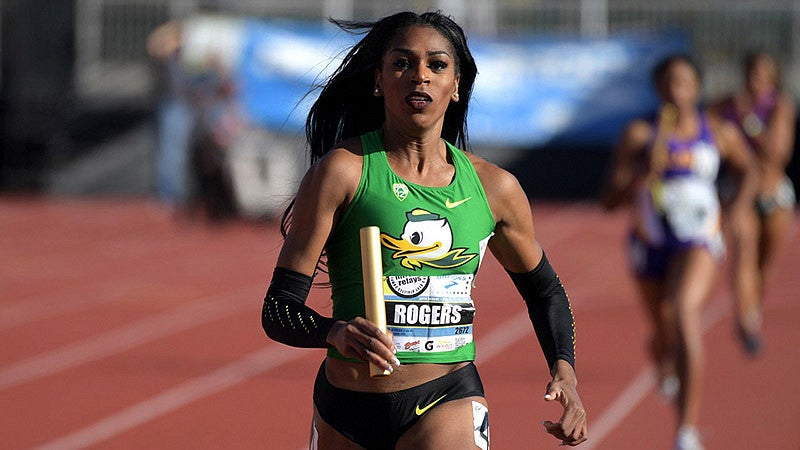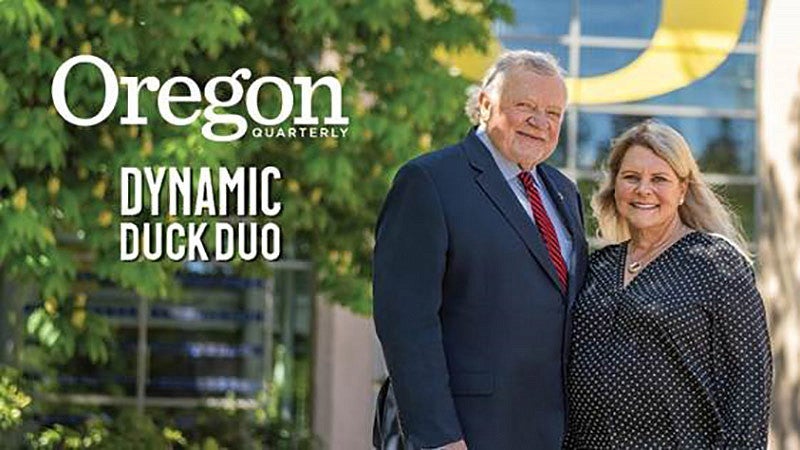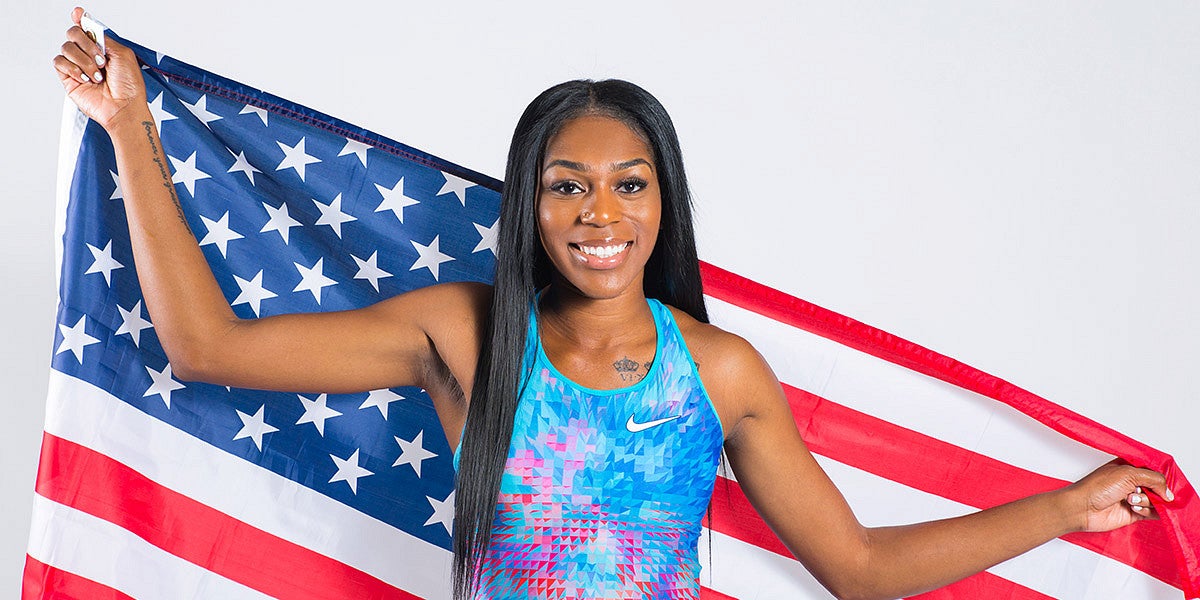
UO running great-turned-pro Raevyn Rogers is set to show the world (championships) what she can do
This is an exciting time for Raevyn Rogers, and it’s easy to see why.
The former University of Oregon track star—now a top pro—is coming off a 2021 season that saw her once again set a personal best in the 800 meters, and she did so in the biggest race of her career with a bronze-medal finish at the Tokyo Olympics. She’s off to a fast start this season, having recently won the 800 at a prominent event—the Mt. SAC Relays in Walnut, California—with a time of 1 minute, 58.77 seconds, which broke a meet record she set as a collegiate. And she recently relocated back to Oregon to train under Pete Julian with the Union Athletics Club, a Nike team of elite runners from across the globe.

To top it all, Rogers is slated to compete in the 18th edition of the World Athletics Championships, which will be held in the US for the first time July 15–24 when the event comes to Hayward Field—the site where she’s had history-making success as a collegiate.
“There’s so much more that I know is going to happen,” says Rogers, BA ’19 (art). “I don’t feel like I’m even close to my prime. I actually feel like I’m just getting started.
A top junior runner, Rogers rocketed to greatness at the UO, where she dominated the 800-meter event as a three-time NCAA outdoor champion and two-time NCAA indoor champion. In 2017, she won the Bowerman Award—named for the UO’s pioneering head track-and-field coach—as the top women’s collegiate track athlete in the country.
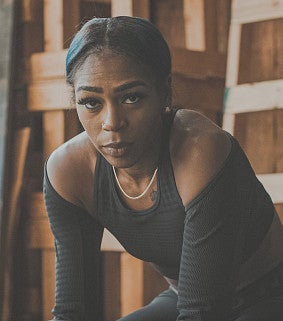
That year, she left an indelible masterpiece behind in her final performance with the Ducks, one that remains her favorite Hayward Field memory.
Oregon was trying to be the first women’s team to win the NCAA Triple Crown by sweeping the team titles in cross country, and indoor and outdoor track and field, in the same academic year. The Ducks entered the 4x400-meter relay at June’s NCAA outdoor meet needing to win to secure the Triple Crown; on the relay’s anchor leg, Rogers passed University of Southern California star Kendall Ellis with 200 meters to go and held her off down the homestretch to give the Ducks a place in history.
“When they told us the situation—about needing to win for the Triple Crown—it didn’t really process for me,” Rogers says. “It’s just natural in me to want to win. It’s so much adrenaline in that moment—all I can remember is how loud it was. It was incredibly loud. You can’t hear anybody, it’s this consistent roaring the whole time.
“To [win the Triple Crown] in front of the home crowd, it was just a celebration between the Eugene community and us. It was something beyond just historically what we were able to achieve. It was a moment that everyone was able to be a part of.”
That moment was undoubtedly as sweet for the Eugene track-and-field community as it was for Rogers and her teammates. In what has been dubbed Track Town, USA, Eugene is home to track fans who have long distinguished themselves for both passion and knowledge of the sport. Rogers likens them to the dedicated Ducks backers who turn out on autumn Saturdays to cheer the football team.
“Eugene track fans are next-level,” Rogers says, laughing. “They know their track. They carry the legacies; they tell the stories about Pre. For me, coming in as a freshman, that was a challenge. I wanted to prove to myself, to these fans, that I would be able to back my reputation up. They’re like the diehard football fans—they do not play about track.”
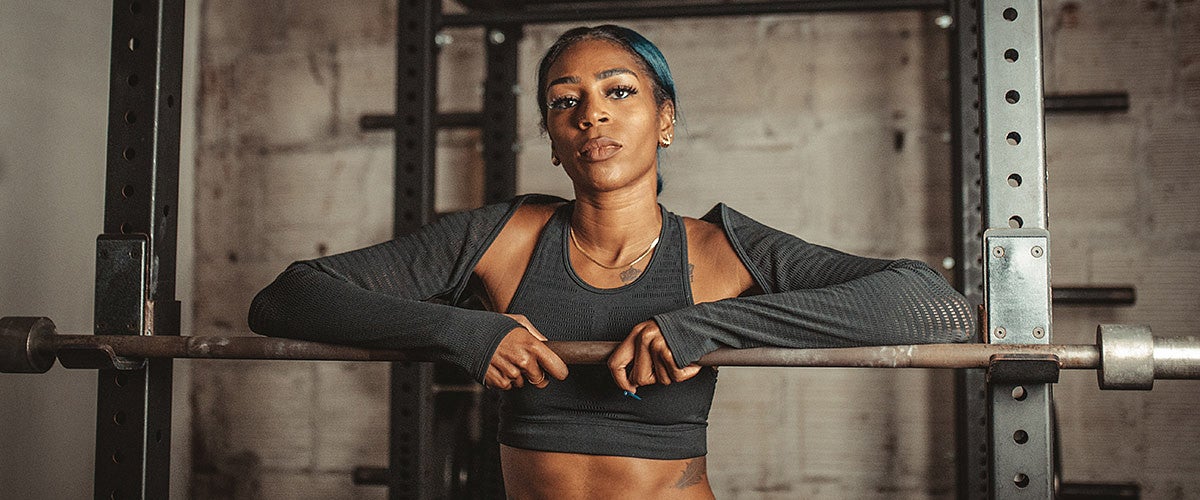
When the reimagined Hayward Field was completed in 2020, Rogers’s likeness was one of five UO track-and-field greats enshrined on a 10-story tower, along with Bowerman, Olympic gold medalists Otis Davis and Ashton Eaton, and legendary distance runner Steve Prefontaine.
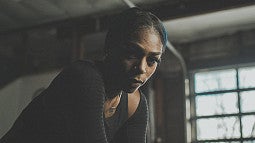
Rogers takes considerable pride in being the only Black woman on the tower. When she was getting into track and field as a youth in Houston, her mother put her in the 800-meter event because there weren’t many Black girls running that race. Madeline (Manning) Mims, the 1968 Olympic gold medalist, was an early inspiration for Rogers.
“[UO leaders] separate themselves from a lot of other universities,” Rogers says. “Even if they hadn’t put me on the tower, they’ve continued the culture where they’re keeping those stories alive of so many great athletes that have come through Oregon.
“To really be making history and breaking barriers as a Black woman, it just goes to show you can have someone to look up to that’s in your field, because kids need that. They need to see somebody that looks like them doing these amazing things.”
Ashley Conklin, BS ’91 (news editorial), is communications manager for World Athletics Championships Oregon22.
Flag Photo Credit: Global Athletics & Marketing
Others: WCH Oregon22


